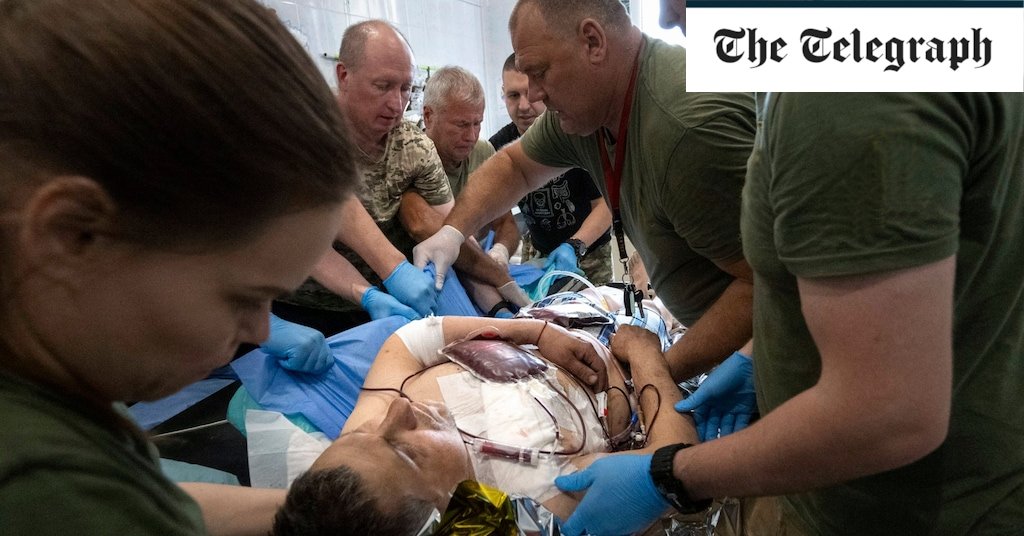
The post’s medics are supposed to work 24 hours on and 24 hours off, but shifts extend according to how busy they are.
“It’s meant to be 24 hours, but sometimes it’s 36 or 48 hours,” says Oleksiy, who was a general surgeon in a civilian hospital before the war.
“Then in a perfect world, it would be 24 hours rest, but often it isn’t. You can get used to anything.”
Staff spend much of their time living and working together. When they start a shift, they have no idea what awaits them, or how busy they will be.
The post is in an area which has been badly damaged by fighting and even now Russian glide bombs are a risk.
The working day is punctuated by air raids and trips to the shelter.
In quiet moments, staff chat, scroll through their phones, check equipment and supplies, or train on each other.
Pavlo, a quietly spoken former surgeon from Chernihiv, now treats soldiers arriving with shock and concussion. “Concussion can be from any kind of weapon that causes a shock wave,” he says.
He says he spends most of his time at the post and gives the impression of someone who is at a loose end when not working. He rarely takes leave, he says. “Normally, if I have a day off, I just sleep.
“Sometimes its calm and sometimes it’s so busy. It depends on the day and time of day.”
He spends his quiet moments getting ready, cleaning and sterilising instruments.
Protect yourself and your family by learning more about Global Health Security

